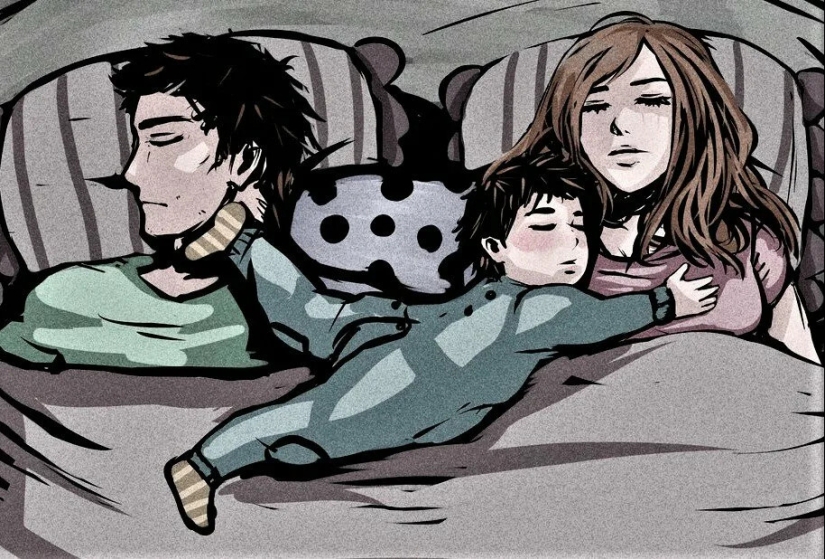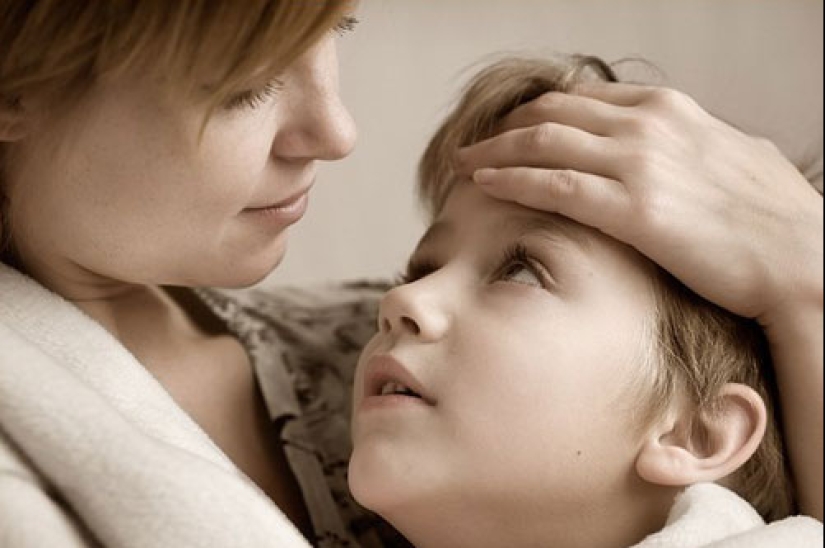The Jocasta complex, or why love for a son can only do harm
Categories: Children | Health and Medicine | Science | Society
By Pictolic https://pictolic.com/article/the-jocasta-complex-or-why-love-for-a-son-can-only-do-harm.htmlThe story of King Oedipus and Queen Jocasta is one of the most complex and unique in ancient Greek mythology. This legend has many symbolic and moral aspects that still inspire and attract people to study it. In this article, we will look at the origin of the Jocasta complex and its impact on the mental health of modern people.

To understand the origin of the Jocasta complex, it is necessary to briefly immerse yourself in ancient Greek mythology.
Queen Jocasta and King Laius ruled in Thebes. Once Laius received a terrible prediction from the oracle: "If you have a son, you will die by his hand." It so happened that later the king actually had an heir, and remembering the prediction, Laius took his son from his mother and gave it to a shepherd. The ruler ordered that the boy be taken to the mountain pastures and thrown to be eaten by predatory animals.

The shepherd felt sorry for the poor baby, so he decided to save his life. On Kyphron, he met a shepherd from the kingdom of Corinth, and gave the child to him, hiding his noble origin. He, in turn, took the baby to his king. The ruler had no children, so he gladly adopted a boy who was named Oedipus.
When Oedipus grew up, rumors began to reach him that he was "adopted." Then the young man went to the oracle, wanting to know who his real father was. Instead of a direct answer, the oracle said:
The prophecy horrified Oedipus, so he decided not to return home, and went where his eyes looked. On the way, he met an old man in a chariot, surrounded by several servants. Oedipus left the road at the wrong time, which made the elderly traveler angry. As a result, a quarrel broke out between them: the old man hit Oedipus with a goad, and he in response dealt him a mortal blow with a staff. As you may have guessed, this old man was King Lai himself.
When Oedipus reached the city of Thebes, he saw the Sphinx - a monster that kept the whole district in fear. A woman with a lion's body asked riddles to passers-by, and those who could not guess them were brutally killed. The wise Oedipus was able to answer the question of the Sphinx, thereby freeing the city from the monster - the defeated Sphinx threw herself off the cliff. The grateful people appointed Oedipus as their king and gave him the widow Laius, Jocasta, that is, his mother, as his wife.
Later, having learned about who her new husband turned out to be, Queen Jocasta cannot stand the shame and kills herself. Oedipus, considering himself unworthy of death, gouges out his eyes, thereby dooming himself to eternal blindness.

Now you know where the name "oedipus complex" comes from. This term was introduced into psychoanalysis by Sigmund Freud. It denotes an unconscious or conscious sexual attraction to one's parent. The Oedipus complex occurs in both boys and girls (in relation to the father).
It should be noted that attraction to one parent is at the same time accompanied by hostility and even hatred towards the second parent. A boy may be jealous of his mother for his father, and a girl may see her mother as a rival.
As you may have guessed, the Jocasta complex is a manifestation of increased interest on the part of the mother in relation to her son. Indirect signs of this phenomenon are observed in varying degrees in many families. These include:

Usually the flowering of the Oedipus complex is observed in women when the child reaches 3-5 years of age. During this period, the mother often begins to address her son with the words: “My man”, “My knight”, “My protector”, and so on.
However, quite often the "symptoms" of the Oedipus complex are observed in women even when their sons become adults. That is why mothers-in-law often dislike their daughters-in-law, and some even go out of their way to destroy a completely happy marriage.
Despite the fact that Sigmund Freud pointed out the sexual nature of the Oedipus complex, the Jocasta complex is extrapolar. It implies precisely exaggerated maternal care. It almost never comes to direct incest. The exception is cases of obvious clinical pathology.
Experts identify several reasons for the development of this complex in women:

Often, the Jocasta complex is associated with a woman's desire to compensate for the lack of love from her husband with a good relationship with her son.
Ironically, but with her overprotectiveness and overprotection, a mother with a Jocasta complex only makes the life of a child worse. In such unhealthy conditions, the psychological adaptation of the child is disrupted, which is why many problems can await him in the future.

It will be extremely difficult for such a person to build relationships with the opposite sex, and people in general. Due to the fact that his mother took care of all the worries in childhood, he will have a rather infantile position in life. Often such people continue to live with their parents until a deep maturity, as they have not been able to find a “soul mate”.
This does not mean that you need to completely stop showing warm feelings towards your son. Of course not. You just need to learn how to build the right relationship with him, while not violating his personal boundaries. Understand your childhood traumas, with internal deficits and fears. In other words, seek help from a psychologist.
Recent articles

It's high time to admit that this whole hipster idea has gone too far. The concept has become so popular that even restaurants have ...

There is a perception that people only use 10% of their brain potential. But the heroes of our review, apparently, found a way to ...

New Year's is a time to surprise and delight loved ones not only with gifts but also with a unique presentation of the holiday ...